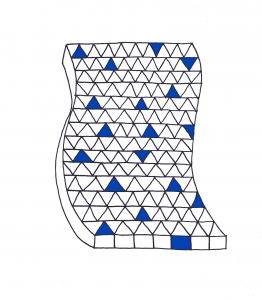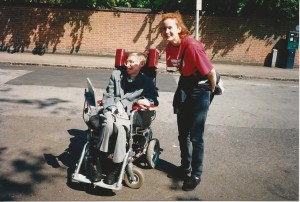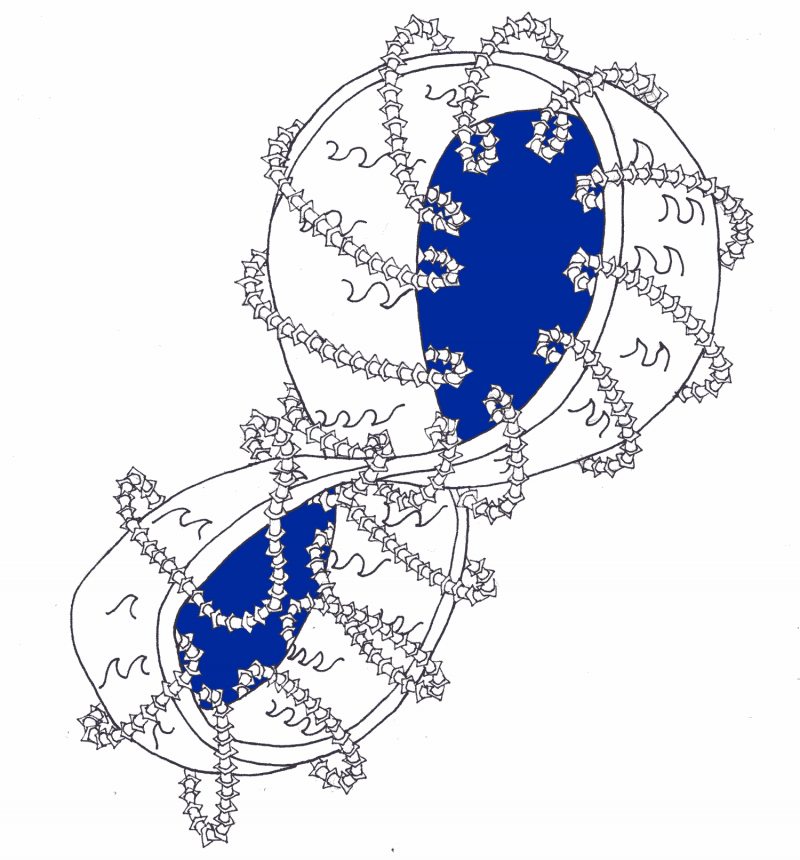You could say it was thanks to rowing, that I met Stephen Hawking.
Rowing was the reason I was in Cambridge that Spring of 1994. I was stopping off in London to race as the international entrant in the Putney Town Regatta women’s novice sculls at the Thames Rowing Club.
Big picture: I was on my way to Norway to meet up with my dad and sister to celebrate 17 Mai in Voss. For Norwegians, May 17 is a really big deal. I would get to wear my cousin’s traditional folk dress for the parade, which was extra special.
I had discovered rowing in third year at UBC, and raced in 8’s and 4’s for two years under our fantastic, hard driving coach, Drew Harrison. I was a natural lightweight in a heavyweight world, but only the Men’s Crew fielded a Lightweight Crew, so I rowed with the heavies. Coach sent me to the Women’s National Lightweight training camp when I graduated in 1984, and at Elk Lake in Victoria, I got a taste of the pairs seat-racing style of team selection that really serious rowers experience.
After graduating, I took up sculling for fun. My rowing partner, Jeannine and I raced doubles, so competing in a single, on the choppy, unfamiliar waters of the Thames in ‘94, was something new. I departed Vancouver with good luck wishes, as well as some teasing from our Burnaby Lake “boatman,” the legendary former Olympian and National Team talent-spotter, Dick McClure, for entering what he called “just a cup race.” No matter, I was always in it to win it.
I loved stopping over in London anytime I was en route to Norway because I could visit Alison, my good friend and the bow woman from our 1982 / 83 novice year UBC Crew. (She would later coach a winning Cambridge Women’s Lightweight 8’s Crew at Henley.) Plus, it was a great way to get over jet lag before hitting the relatives in Norway.
This trip had the bonus of seeing my cousin, Greg, who was studying for his PhD in Philosophy of Science at Cambridge. I had never visited Cambridge before, and the chance to see him, his wife and new baby, plus my aunt and uncle visiting from Vancouver, was too good to pass up.
When I arrived on the train from London, my relatives were at Cambridge Station to meet me. We walked back to the house in the perfect May weather, as nature hummed with the kind of English Spring you read about, but rarely experience. The fragrance of green plants and new blossoms wafted around us as we followed the path, and my aunt pointed out fresh nettles and the antidote plant that grows alongside.

Greg told me that he often encountered Professor Hawking along the path he took between home and school, but that the general agreement on campus was not to disturb his private time and thoughts. Also, he travelled quickly. When it was dark all that could be seen was his light, jolting at bumps and zipping along like some ground-level shooting star. Nonetheless, the aura of his magnificent intellect and spirit was everywhere, and imbued the great university with special pride and a sense of protectiveness towards him.
After a visit with the new baby, a peek into the hallowed King’s College Chapel, and a tour of the university’s historic and intimate laneways, we emerged into a quadrangle illuminated gold by the afternoon light. My eye was drawn around the perimeter by the riotous lilacs that festooned it.
Not far from there, at the corner of a building, just outside the entrance (to his residence as my cousin later told me,) was the familiar figure of Professor Hawking, taking his ease in the sun, alone, and apparently lost in thought. This was a chance I could not miss. My relatives stood back aghast, while I walk-ran over, and with Canadian lack of formality, introduced myself:
“Hello Mr. Hawking,” I began, forgetting to use the correct Dr. or Professor, “My name is Erica. I’m visiting from Vancouver. Canada.” I paused for what I hoped was a respectful moment and then continued, “May I take a picture with you?”
My aunt, seeing me hold out my camera, approached cautiously. The few moments I waited for his answer seemed both ephemeral and timeless. I had to lean in close to see what he typed, just one perfect word: “Yes.”
Time sped up again. My aunt snapped the picture.
“Goodbye, thank you very much, Sir!” I said, and skipped excitedly back to my relatives. They couldn’t believe what I had just done, and congratulated me with undisguised delight.
Back to that singles race on the Thames — Alison beat me, and she still has the cup to prove it.



